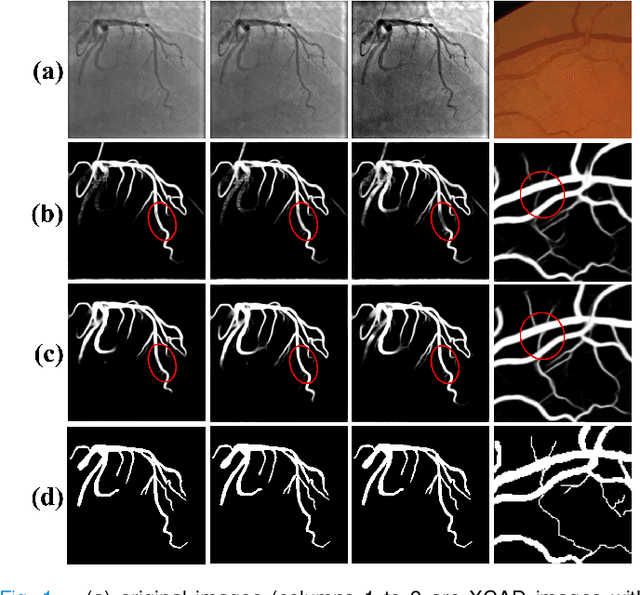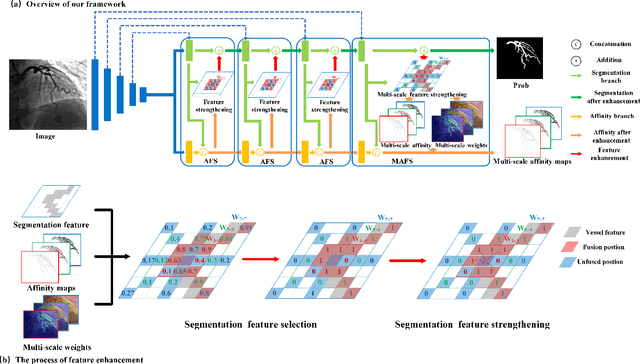Affinity Feature Strengthening for Accurate, Complete and Robust Vessel Segmentation
Paper and Code
Nov 12, 2022



Vessel segmentation is essential in many medical image applications, such as the detection of coronary stenoses, retinal vessel diseases and brain aneurysms. A high pixel-wise accuracy, complete topology structure and robustness to various contrast variations are three critical aspects of vessel segmentation. However, most existing methods only focus on achieving part of them via dedicated designs while few of them can concurrently achieve the three goals. In this paper, we present a novel affinity feature strengthening network (AFN) which adopts a contrast-insensitive approach based on multiscale affinity to jointly model topology and refine pixel-wise segmentation features. Specifically, for each pixel we derive a multiscale affinity field which captures the semantic relationships of the pixel with its neighbors on the predicted mask image. Such a multiscale affinity field can effectively represent the local topology of a vessel segment of different sizes. Meanwhile, it does not depend on image intensities and hence is robust to various illumination and contrast changes. We further learn spatial- and scale-aware adaptive weights for the corresponding affinity fields to strengthen vessel features. We evaluate our AFN on four different types of vascular datasets: X-ray angiography coronary vessel dataset (XCAD), portal vein dataset (PV), digital subtraction angiography cerebrovascular vessel dataset (DSA) and retinal vessel dataset (DRIVE). Extensive experimental results on the four datasets demonstrate that our AFN outperforms the state-of-the-art methods in terms of both higher accuracy and topological metrics, and meanwhile is more robust to various contrast changes than existing methods. Codes will be made public.
 Add to Chrome
Add to Chrome Add to Firefox
Add to Firefox Add to Edge
Add to Edge